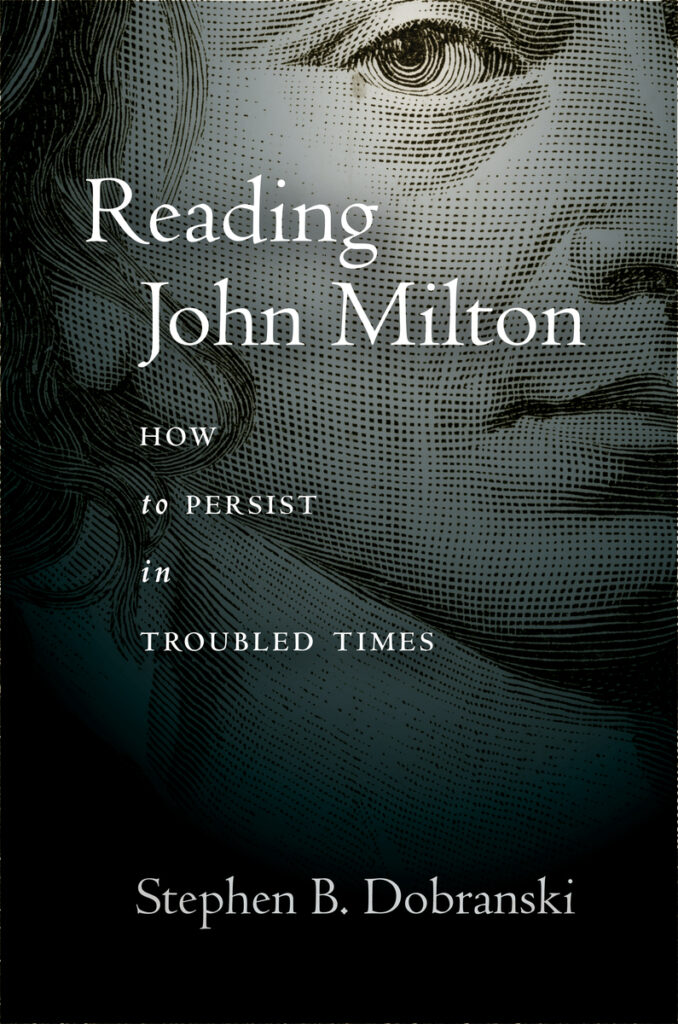Reading John Milton
John Milton is unrivalled—for the music of his verse and the breadth of his learning. In this brisk, topical, and inspiring biography, Stephen B. Dobranski brushes the scholarly dust from the portrait of the artist to reveal Milton’s essential humanity and his unwavering commitment to ideals—freedom of religion and the right and responsibility of all persons to think for themselves—that are still relevant and necessary in our times.
Milton’s epic poem, Paradise Lost, is considered by many to be English poetry’s masterpiece. Samuel Johnson, not one for effusive praise, claimed that “from his books alone the Art of English Poetry might be learned.” But, Milton’s renown rests on more than his artistic achievements. In a time of convulsive political turmoil, he justified the killing of a king, pioneered free speech, and publicly defended divorce. He was, in short, an iconoclast, an independent, even revolutionary, thinker. He was also an imperfect man—acrimonious, sometimes mean. Above all, he understood adversity. Afflicted by blindness, illness, and political imprisonment, Milton always sought to “bear up and steer right onward” through life’s hardships.
This book looks beyond Milton’s academic standing, beyond his reputation as a dour and devout purist, to reveal the ongoing power of his works and the dauntless courage that he both wrote about and exemplified.
Praise for Reading John Milton:
“As a scholar of the finest caliber, Dobranski has everything at his fingertips—the full range of primary texts in both poetry and prose; the minutest biographical details; the sweeping sociopolitical contexts; and the corpus of secondary scholarship. As a result, he moves quite comfortably across the Miltonic landscape, and the readings here have a relaxed feel…. [I]t was a pleasure to come along as Dobranski takes the pulse of one of our greatest writers.”
Alison A. Chapman, Modern Philology
“If you only add one Milton book for your library, this is the one.”
Cliff Cunningham, Sun News Austin
“Dobranski does a marvelous job of revealing just as much about Milton himself as he does about the man’s work through close readings that create an illuminating portrait of an artist who ‘aspired to transcend his own limitations, defeats, and prejudices, continuing to work tirelessly and trying to… help his readers to live freely and righteously.’ This puts to rest the notion that Milton is just for academics.”
Publishers Weekly
